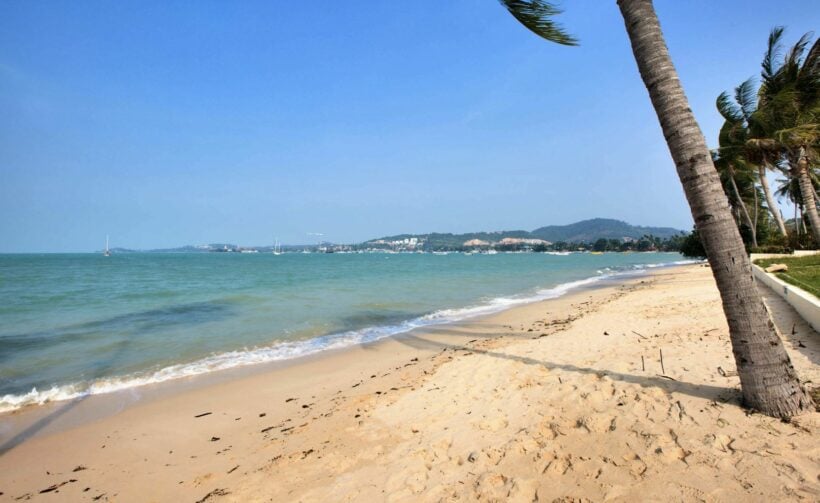Thailand’s tourist magnets deserted and desperate

The 2004 Indian Ocean tsunami, bird flu, SARS, political upheavals, passenger boats sinking. None of these have had anywhere near the effect of this year’s Covid-19 pandemic in Thailand. Visitor numbers, even from the usually enthusiastic Tourism Authority of Thailand, are expected to plummet up to 80% for the year. The other 20% mostly visited the Kingdom in the first quarter before the ‘disruption’. Last year, almost 40 million tourists visited Thailand.
Phuket and Pattaya, both economies built around the smell of the tourist dollar, are almost devoid of any tourists – a few domestic tourists and long-term expats are doing little to revive economies that previously relied on thousands of daily arrivals, not less than a hundred.
In Phuket, Monday morning, there were only three domestic flights out of the airport terminal, all to Bangkok. The Thaiger was flying on an Air Asia flight, probably 60% full. Even the most optimistic travel consultants are wondering how long even the lean and mean low-cost airlines can keep flying with limited passengers, on limited flights and most of their fleet still gathering dust on airfields around the country.
On Koh Samui, Thailand’s second largest island, the situation is even worse than its Phuket and Pattaya cousins with beaches almost entirely empty. The streets of Koh Samui are eerily quiet. Along Chaweng’s Beach Road, a famous tourist magnet, shopping and party zone, shuttered shops stretch all the way along the beach strip.
In the months before, over the traditional Thai tourism ‘high season’ Samui had been buzzing with traffic. Now, taxi drivers sit idle on the roadside with little chance of passing customers. There are now more soi dogs lazing on the Beach Road than taxis sitting kerbside.
Nearly 40 million tourists made their way to Thailand in 2019, attracted by the spectacular beaches, ornate temples, famous cuisine and exotic culture. In 2020, the country will struggle to reach even 20% of that.
Since April, Thailand has imposed a ban on all incoming passenger flights. Then in June, politicians, eager to restart the tourist economy, started chatting about travel bubbles with other low-risk cities and countries. But the number of infected Thai repatriates, and the resurgence of Covid-19 in some of the previously low-risk countries, has shelved any idea of travel bubbles appearing any time soon.
For now, Thailand’s borders remain largely shut to almost all foreigners. Certainly there are no tourists being allowed into the country to populate the bars and shops in the country’s most popular tourists areas. Tanes Petsuwan, deputy governor for marketing communication at the TAT, says that during previous crises, revenue and passenger traffic dropped up to 20%.
“This year, the coronavirus pandemic is expected to cause a 80% fall in revenues. It’s a huge impact.”
As the country started re-opening shops in a rollout of ‘re-opening phases’ during May and June, shops eagerly opened their doors around the country hoping to restart their businesses. Restaurants, retailers, shopping centres, service industries. Even the bars and pubs were allowed to re-open from the start of July.
But now many of these small businesses have shut up shop again with their enthusiasm for re-opening replaced with a reality that there are just a lot fewer customers than before. In tourist hotspots like Pattaya, Patong (the main tourist town in Phuket) and Samui, the previously busy tourist magnets are now virtually ghost towns. In other parts of the country, certainly around Bangkok, Thai life is resuming swiftly but this time, without foreign tourists.
Lloyd Maraville, the GM of Nora Buri resort and spa in Samui reports that, of his hotel’s 144 rooms, about 100 remain empty, though this will fall to 85 over the coming holiday weekend.
“Government measures might sustain hotels for a while but it will not be a long-term solution. Profit is out of the question at this moment, we just want to maintain the resort.”
The GM of another 5 star hotel in Kata, Phuket, who asked not be named, said that his resort is re-opening 10 rooms, instigated by the Government’s domestic tourism stimulus package, and intend keeping those rooms open with a skeleton staff.
“We’ve sold out most of the rooms for the long weekend but don’t know where the tourists will be coming from after that. But we have to remain optimistic.”
In Koh Samui, businesses remain focused on basic survival for now, doing whatever they can to find a few customers just to pay for their skeleton staff and rent. Last month it was reported that nearly 100 local hotel owners were having to put up their properties for sale in Samui.
Many more, in Samui and other parts of the country, remain closed indefinitely.
SOURCE: The Guardian | The Thaiger | TAT
Latest Thailand News
Follow The Thaiger on Google News:


























